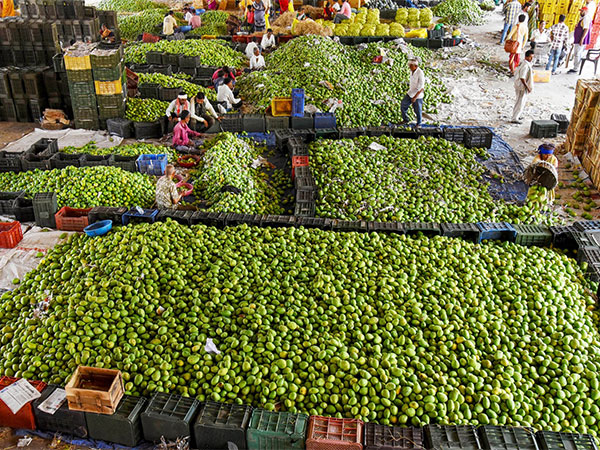Pakistan: Weekly inflation continues upward trend; driven by rising vegetable prices
The Finance Bill 2024 proposes a range of indirect taxes that are anticipated to escalate inflation in the coming weeks

- Country:
- Pakistan
Inflation based on the Sensitive Price Index (SPI) marked its fourth consecutive weekly increase, primarily attributed to a surge in vegetable prices, according to official data released, Dawn reported. For the week ending June 20, year-on-year SPI-based inflation escalated sharply by 23.78 per cent. The weekly comparison showed a 0.94 per cent rise.
The Finance Bill 2024 proposes a range of indirect taxes that are anticipated to escalate inflation in the coming weeks. Notably, an 18 per cent sales tax is projected to impact prices of pharmaceuticals, books, stationery, and poultry products, as reported by Dawn. Despite a decline in petrol prices, the impact on essential commodities is expected to be offset by rising prices of perishable vegetables such as tomatoes, onions, and potatoes. Moreover, the imposition of increased sales tax and customs duties on fresh vegetables and fruits imported from Iran and Afghanistan is likely to further fuel food inflation in the near term.
Weekly inflation had peaked at a record 48.35 per cent year-on-year in early May 2023, later moderating to as low as 24.4 per cent by late August 2023, before surging beyond 40 per cent in the week ending November 16, 2023, according to Dawn. The weekly price movements indicated significant increases for items such as tomatoes (65.84 per cent), potatoes (5.61 per cent), onions (3.78 per cent), bananas (3.29 per cent), LPG (2.44 per cent), cigarettes (1.67 per cent), pulse moong (1.53 per cent), garlic (1.29 per cent), fresh milk (0.95 per cent), eggs (0.83 per cent), georgette (0.28 per cent), and shirting (0.17 per cent).
Conversely, items that witnessed price declines over the previous week included petrol (3.76 per cent), diesel (0.84 per cent), rice basmati broken and pulse masoor (0.08 per cent each), and chicken (0.05 per cent). On an annual basis, notable price increases were recorded for Q1 gas charges (570 per cent), tomatoes (191 per cent), onions (122.66 per cent), chillies powder (54.81 per cent), garlic (40.55 percent), shirting (30.75 per cent), salt powder (29.49 per cent), gents sandal (25.01 per cent), pulse gram (22.67 per cent), pulse mash (22.60 per cent), beef (22.12 per cent), and Q1 electricity charges (21.46 per cent).
In contrast, prices decreased significantly for wheat flour (32.90 per cent), chicken (20.60 per cent), 5-liter cooking oil (16.17 per cent), 2.5 kg vegetable ghee (13.39 per cent), 1 kg vegetable ghee (12.42 per cent), bananas (11.69 per cent), mustard oil (8.24 per cent), Lipton tea (2.52 per cent), and petrol (1.38 per cent). The SPI index closed at 316.88 compared to 313.93 the previous week and 256 a year ago. This index, composed of 51 items surveyed from 50 markets across 17 cities, provides a weekly snapshot of essential commodity and service prices.
Data analysis indicated that prices increased for 25 items, decreased for 5 items, and remained unchanged for 21 items compared to the previous week, Dawn reported. (ANI)
(This story has not been edited by Devdiscourse staff and is auto-generated from a syndicated feed.)










